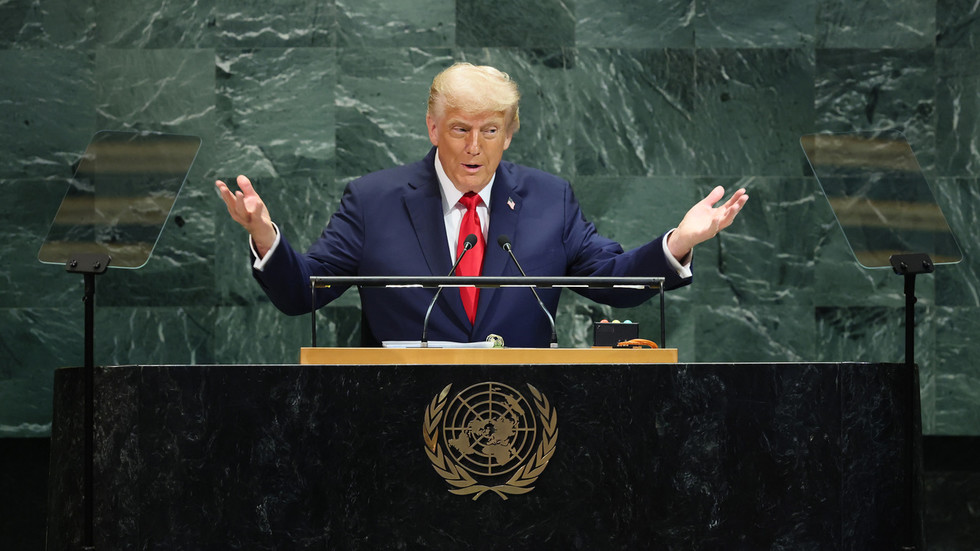March 19, 2024

The unprecedented terrorist attack by Hamas came as a shock to Israel and the world. Hamas continues to fire numerous rockets towards Israel. What is the mood in the country?
The mood is very tense and marked by grief and apprehension. There is mourning for the more than 1,400 dead and, above all, worry about the hostages who were kidnapped and taken to the Gaza Strip and are being displayed and used as human shields by Hamas and the Islamic Jihad. Among them are children, women and Holocaust survivors. Seven October has traumatised the people of Israel — perhaps even more so than the Yom Kippur War exactly 50 years ago. For hours, the terrorists took control of entire towns in the Israeli heartland near the Gaza Strip and raped, tortured and murdered. This has shaken Israel to its foundations, including its traditionally very high level of trust in its armed forces.
The current year was marked by mass demonstrations against the government. Last week, Prime Minister Benjamin Netanyahu agreed with the opposition to form an emergency government. How united is Israel at the moment?
On the one hand, very united: the country is closing ranks. Three hundred thousand reservists have been mobilised. There is a lot of help being given to the people who had to be evacuated and great solidarity among them — incidentally also between the Jewish and Arab populations in places where they live together. The opposition politician Benny Gantz is in the emergency government along with four other ministers without a portfolio from his party. The weekly mass protests against judicial reform have been suspended.
On the other hand, the investigation into how such a catastrophe could have come about has already begun. The focus of the criticism is not only on the secret services but also on the political leadership. I assume that politically, Netanyahu will not survive this process. There are already first calls for his resignation. The government’s strategy of decoupling a settlement with Arab states from a peace settlement with the Palestinians, and instead managing the status quo, has failed dramatically. One thing is clear, however: Hamas will not be part of any future political solution.
This week, German Chancellor Olaf Scholz and US President Joe Biden travelled to Israel to show their solidarity. How important is the solidarity of the West for the country?
It cannot be overestimated, both politically and psychologically. During his visit, Olaf Scholz was shown great respect and appreciation. The Chancellor and the US President have both drawn attention to the catastrophic humanitarian situation in the Gaza Strip and have strongly advocated deliveries of aid. That was very important. At the same time, there are great expectations associated with the Chancellor’s visit and German diplomatic engagement. This became very clear during his meeting with relatives of German hostages in Tel Aviv.
Israel has declared war on Hamas and is responding with massive air strikes on the Gaza Strip. Many observers expect Israel to invade with ground troops. How is the government’s response being discussed in the country?
Public opinion is almost unanimous that everything necessary must be done to crush the military capabilities of Hamas and the Islamic Jihad, particularly since there are ongoing attempts by Hamas to infiltrate Israel from the Gaza Strip. Eighty-six per cent of people who describe themselves as politically left-wing support a ground offensive in Gaza. Jossi Beilin, former foreign minister and one of the architects of the Oslo Accords, has also expressed this view. The war cabinet brings together a great deal of military expertise and experience thanks to the inclusion of the two former chiefs of general staff, Benny Gantz and Gadi Eizenkot. Meanwhile, the right-wing extremist ministers of the Netanyahu government are not at the table.
Despite all the hope for a prudent approach, Israel will hardly be able to achieve its goal of eliminating Hamas’ military wing without a ground offensive of some kind. This will most likely claim many lives, including civilian victims. Israel faces a moral dilemma: Hamas’ perfidious strategy aims to target as many victims as possible, including among its own civilian population, in order to then exploit them for propaganda purposes. But one must not do Hamas the favour of relativising its barbaric terror as resistance to the Israeli occupation of the West Bank. It is also important to emphasise that a distinction is made in Israel: Hamas or Islamic Jihad are not equated with the Palestinian population.
The impact of a rocket hitting a hospital in Gaza has further aggravated the situation in the region. Are the consequences already foreseeable?
No, not in any way. The many victims are, first and foremost, a great human tragedy. The already extremely heated atmosphere has since threatened to spiral out of control globally. Outrage and anger have largely become detached from the facts. Israel has now provided credible and verifiable evidence that the cause of the explosion outside the hospital was not Israeli shelling, but a misdirected rocket from the Islamic Jihad. Among others, the US and France agreed with this assessment. Of course, an independent investigation would be important for the results to be accepted, but it would be difficult to carry this out under present conditions. Either way, it will have almost no effect on the hateful sentiment directed against Israel. People believe what they want to believe. In addition, there is often one-sided or incomplete reporting that ignores the causes and consequences. Even worse is the effect of out-of-context images on social media as well as the unimaginable amount of fake news, including targeted Russian disinformation. Israel will win the war against Hamas. But it has already lost the war for international public opinion.
How great is the fear of further escalation, especially a two-front war with Hamas in the south and Hezbollah in the north?
There is considerable concern about an escalation at the borders with Lebanon and Syria; towns near the border have already been evacuated. The shelling of Israeli territory continues and Israel reacts to this. However, Israel has no interest in an escalation. Hezbollah has a large arsenal of missiles, some of them long-range. International diplomatic efforts to prevent a conflagration have suffered a setback with the cancellation of the four-way summit between Joe Biden, the Jordanian king, and the Egyptian and Palestinian presidents. In the meantime, international high-level talks have resumed, which is important. What is also necessary is unequivocal warnings towards Iran, whose regime is threatening Israel in the most aggressive manner and is supporting both Hezbollah and Hamas militarily and financially. It is still not possible to say with certainty how directly Iran was involved in the preparations for Hamas’ terrorist attack.



